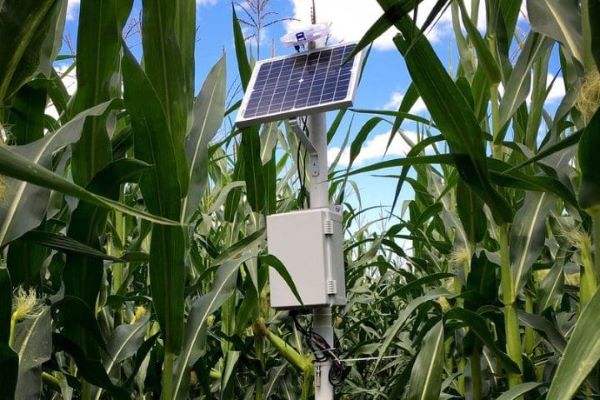Researchers at Michigan State University (MSU) have developed a low-cost sensor system to help farmers improve irrigation efficiency and manage crop diseases more effectively. Led by Younsuk Dong, an assistant professor in the Department of Biosystems and Agricultural Engineering, the system—known as the Low-Cost Monitoring System (LOCOMOS)—uses in-field sensors to track soil moisture, leaf wetness, and environmental conditions. The data is analyzed to provide irrigation recommendations via a smartphone app, offering an affordable alternative to expensive commercial-grade systems.
In recent years, Michigan farmers have faced extreme weather, with both droughts and excessive rainfall impacting crops. These conditions have made irrigation management more critical, as over-irrigation can promote diseases like tar spots in corn and white mould in soybeans.
The LOCOMOS system aims to fine-tune irrigation practices, reducing water usage while minimizing the risk of disease outbreaks.
ALSO READ [VIEWPOINT] How earthworms have ‘completely scrambled’ genomes
Supported by a $426,000 grant from the U.S. Department of Agriculture’s Natural Resources Conservation Service (NRCS), Dong’s team, including field crops pathologist Martin Chilvers, is testing the system across various crops, including corn, soybeans, and tomatoes.
Initial results show improved water-use efficiency and increased crop yields without raising disease incidence. In corn fields, LOCOMOS saved growers up to $7,700 per 100 acres annually, while soybean fields saw a $1,300 increase.
As MSU researchers continue testing the technology, they are also exploring the potential for automating irrigation systems to further optimize water use. This innovative approach could revolutionize how farmers manage water and diseases, providing practical, cost-effective solutions for agricultural sustainability.


